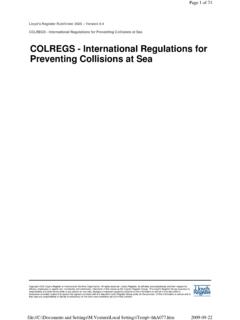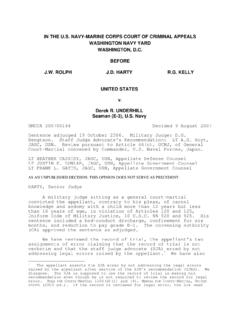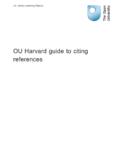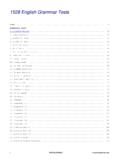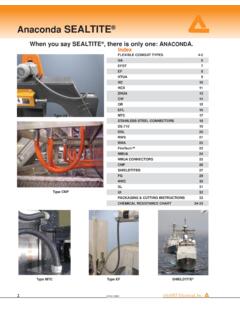Transcription of IN THE U.S. NAVY-MARINE CORPS COURT OF CRIMINAL …
1 IN THE NAVY-MARINE CORPS COURT OF CRIMINAL APPEALS WASHINGTON NAVY YARD WASHINGTON, BEFORE WAGNER VINCENT STONE UNITED STATES v. Michael ADAMS, Jr. Staff Sergeant (E-6), U. S. Marine CORPS PUBLISH NMCCA 200600767 Decided 19 December 2006 Sentence adjudged 17 May 2001. Military Judge: Wesely. Review pursuant to Article 66(c), UCMJ, of General COURT -Martial convened by Commanding General, Marine CORPS Air Bases Western Area, MCAS Miramar, San Diego, CA. LT DARRIN MACKINNON, JAGC, USN, Appellate Defense Counsel LT JASON LIEN, JAGC, USN, Appellate Government Counsel LT HUDSON, JAGC, USN, Appellate Government Counsel WAGNER, Senior Judge: The appellant was convicted, pursuant to mixed pleas, by officer and enlisted members sitting as a general COURT -martial, of unauthorized absence, dereliction of duty, and five specifications of wrongful The members sentenced the appellant to confinement for 18 months, forfeiture of all pay and allowances, reduction to pay grade E-1, and a bad-conduct discharge.
2 The convening authority approved the sentence as adjudged. The appellant claims, in his sole assignment of error, that he was denied speedy post-trial processing of his COURT -martial when it took over five years to docket the record of trial with this COURT following 1 The offenses violated Articles 86, 92, and 121, Uniform Code of Military Justice, 10 886, 892, and 921. 2 The appellant asserts that he was denied speedy post-trial review of his COURT -martial because 2,206 days elapsed following sentencing before the record of trial was docketed with this COURT . The claim is in error, as the record reveals that 1,841 days elapsed between trial and docketing with our COURT , 1,666 days of which elapsed after the convening authority had taken action on the case.
3 2 Post-Trial Delay While the Supreme COURT has not addressed appellate delay as a due process violation, it has been generally held by the federal courts that egregious delay in post-trial processing can result in a due process violation. Campiti v. Matesanz, 186 F. Supp. 2d 29, 43 (D. Mass. 2002)("..seven of the Courts of Appeals have held that an appellate delay may constitute a due process violation under some circumstances."), aff'd, 333 317 (1st Cir. 2003). In reviewing claims of post-trial delay under either the Fifth or Fourteenth Amendment due process clauses, the appellate courts have applied the Supreme COURT 's Sixth Amendment analysis of pretrial delays as set forth in Barker v.
4 Wingo, 407 514 (1972).3 Barker, 407 at 530. The Supreme COURT emphasized that the approach they set forth "is a balancing test, in which the United States v. Hawkins, 78 348, 350 (8th Cir. 1996); Simmons v. Beyer, 44 1160, 1169 (3d Cir. 1995); Hill v. Reynolds, 942 1494, 1497 (10th Cir. 1991); United States v. Antoine, 906 1379, 1382 (9th Cir. 1990); Simmons v. Reynolds, 898 865, 868 (2d Cir. 1990); Rheuark v. Shaw, 628 297, 303-04 (5th Cir. 1980); United States v. Johnson, 732 379, 381-82 (4th Cir. 1984). The COURT of Appeals for the Armed Forces has also applied the Sixth Amendment Barker analysis to the Fifth Amendment due process issues arising from post-trial delay in military courts-martial.
5 Toohey v. United States (Toohey I), 60 100, 102 ( 2004). 1. Supreme COURT Speedy Trial Analysis Recognizing that delay prior to trial could work either to a defendant's detriment or in a defendant's favor, the Barker COURT established a balancing test, with four enumerated factors for consideration in determining whether there had been a due process violation resulting from pretrial delay: (1) the length of the delay; (2) the reasons for the delay; (3) the defendant s assertion of his right; and (4) prejudice to the defendant. 3 Of the Federal Courts of Appeal, only the First Circuit has rejected the Barker factors as the required due process analysis for post-trial delay.
6 United States v. DeLeon, 444 41, 57 (1st Cir. 2006)( This circuit's requirement is that the defendant must show prejudice, and we will not presume prejudice from the length of the delay. ). The First Circuit's rationale is based on the differences between Sixth Amendment speedy trial claims and Fifth and Fourteenth Amendment due process claims. They specifically note that the issues caused by delay on appeal are more limited than those arising from pretrial delay and opine that at least two of the Barker factors have little rationale in the appellate context. 3 conduct of both the prosecution and the defendant are weighed.
7 " Id. Regarding the first factor, the length of the delay, the Barker COURT stated: The length of the delay is to some extent a triggering mechanism. Until there is some delay which is presumptively prejudicial, there is no necessity for inquiry into the other factors that go into the balance. Nevertheless, because of the imprecision of the right to speedy trial, the length of delay that will provoke such an inquiry is necessarily dependent upon the peculiar circumstances of the case. To take but one example, the delay that can be tolerated for an ordinary street crime is considerably less than for a serious, complex conspiracy charge.
8 Id. at 530-31 (emphasis added)(footnote omitted). Absent a delay so lengthy relative to the complexity of the case that it triggers the presumption of some prejudice flowing from the delay, we need go no further into the analysis. Not every pretrial delay, therefore, requires the appellate courts to conduct a Barker analysis. This position has support in the Courts of Appeal. Palmer v. Clarke, 408 423, 435 (8th Cir. 2005)("If the length of the delay cannot be said to be presumptively prejudicial, however, there is no deprivation of the speedy trial right.")(citing Barker, 407 at 530). Absent a presumptive rule, this threshold determination must also be made only within the circumstances of a particular case, not from arbitrary time periods or general rules applicable to all cases.
9 "'The right of a speedy trial is necessarily relative. It is consistent with delays and depends upon circumstances.'" Barker, 407 at 522 (quoting Beavers v. Haubert, 198 77, 87 (1905)). Turning to the second factor, the reasons for the delay, the Barker COURT stated that "different weights should be assigned to different reasons." Id. at 531. As examples, the COURT provided that any "deliberate attempt to delay the trial in order to hamper the defense should be weighted heavily against the government," while any "more neutral reason such as negligence or overcrowded courts should be weighted less heavily but nevertheless should be considered since the ultimate responsibility for such circumstances must rest with the government rather than with the defendant.
10 " Id. The COURT added, as a final note, that valid reasons, such as missing witnesses, "should serve to justify appropriate delay." Id. In addressing the third factor, whether the defendant had asserted his right to a speedy trial, the Supreme COURT set forth the following standard: The defendant's assertion of his speedy trial right, then, is entitled to strong evidentiary weight in 4 determining whether the defendant is being deprived of the right. We emphasize that failure to assert the right will make it difficult for a defendant to prove that he was denied a speedy trial. Id. at 531-32. Finally, with regard to the fourth Barker factor, the COURT went on to say that prejudice "should be assessed in the light of the interests of defendants which the speedy trial right was designed to protect.
